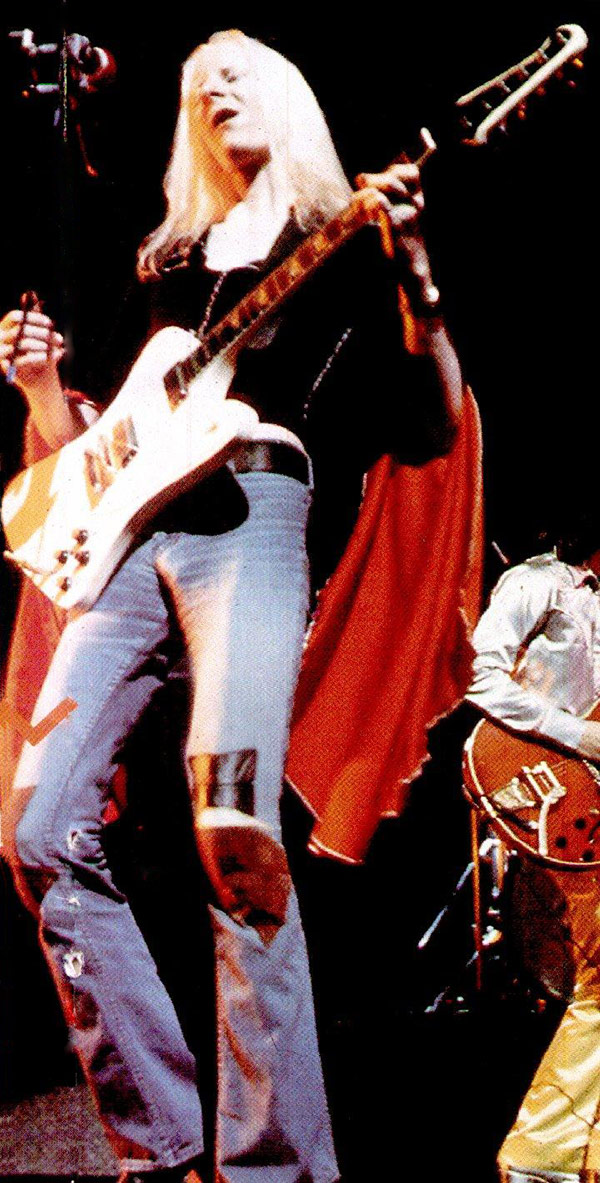Bill Graham the controversial impresario behind San Francisco Fillmore West and New York's Fillmore East, has been called more names than there is room to print, though most of them are unprintable anyway. But neither he nor his rock shows have been called dull. Because of his fiery temper (he once got in a fight with the Rolling Stones' road manager on stage), his enormous success as a promoter and his unabashed flair for dramatics, Graham has been labeled everything from the David Merrick of rock to an out-and-out money-grubber. Now that the two Fillmores are doing well, Graham has turned his eyes toward Los Angeles and the local rock scene may never be the same.
He has scheduled a series of rock concerts at the Olympic Auditorium. The first one, last Saturday night, featured Frank Zappa, Johnny Winter and Mountain. The next one, due March 21, is headlined by Quicksilver Messenger Service, Smith and 10 Years After. Sitting in a Sunset Blvd. office, Graham said he feels Los Angeles is a good market for a Fillmore type operation. "There should be a lot more going on here than there is now," he said. "What you have is a few promoters who wait for the top acts to come to town, then bid $40,000 for them and rent an arena. "There needs to be more creativity. You need to mix different acts, provide opportunity for new groups to be heard.
We have brought acts into the Fillmore that never played rock clubs before, people like Count Basie, Roland Kirk, Buck Owens, Willie Bobo, Buddy Rich. "We think we have been a plus.for San Francisco. We think the Fillmore has been a good thing for artists, for us and for the audience. That doesn't mean we are coming down here as missionaries. We're businessmen." Here From Germany Graham, who came to the United States from his native Germany in 1941, opened the Fillmore West in 1965, the Fillmore East later. Over the years, the clubs have featured rock's biggest stars. No other clubs have as much influence. They are what the Palace was to vaudeville and the Apollo was to soul.
The important thing in the Fillmore operation, Graham maintains, is the booking policy. Normally, the bills consist of three or four acts that are mixed together with uncanny skill. The acts are matched for compatibility rather than just pulled at random from the hit parade. "You don't want, all the same kind of acts on one bill," he said. "If you book Chicago as a headliner, you don't want 'Son of Chicago' as the second act because they will both he drawing the same people into the auditorium. You want the second act to be different but compatible so that it will draw some additional people into the room but not bore fans who came to see the main act. You wouldn't mix Chicago with, say, Blue Cheer "
Like most rock promoters, Graham has come in for his share of money grabbing complaints from those who would like to see admission prices lowered or eliminated. Graham, who is irresistibly frank, bristles at the charges. Bill Graham Lot of Talk "We have a lot of talk about love and happiness," he said. "I believe in that. I also believe in giving the public a good show. It costs money to do that. People are always coming up to me, waving their fists at me and saying I'm charging too much. We charge $3.50 top in San Francisco. That's the lowest price for a top concert you'll find anywhere in the country. They never point their fingers at the artists who charge me $10,000 a night.
I'll be glad to lower my price if the artists lower theirs." To succeed in Los Angeles, Graham may have to pull some of the talent away from local promoters. It will be hard because Concert Associates and Sight and Sound are excellent firms. "We will call agents and ask if the groups are available. We have worked with lots of groups. We have good track records. We think we have a lot to offer the groups. But we're not ambulance chasers. If the groups are satisfied with the local promoters, we won't threaten them by saying they have to switch to us if they want to play the Fillmores."
Graham, who now heads his own record label (Fillmore) and booking agency, is interested in branching out into films and other areas.
Source & Full Article: 70-03-09 LA TIMES
